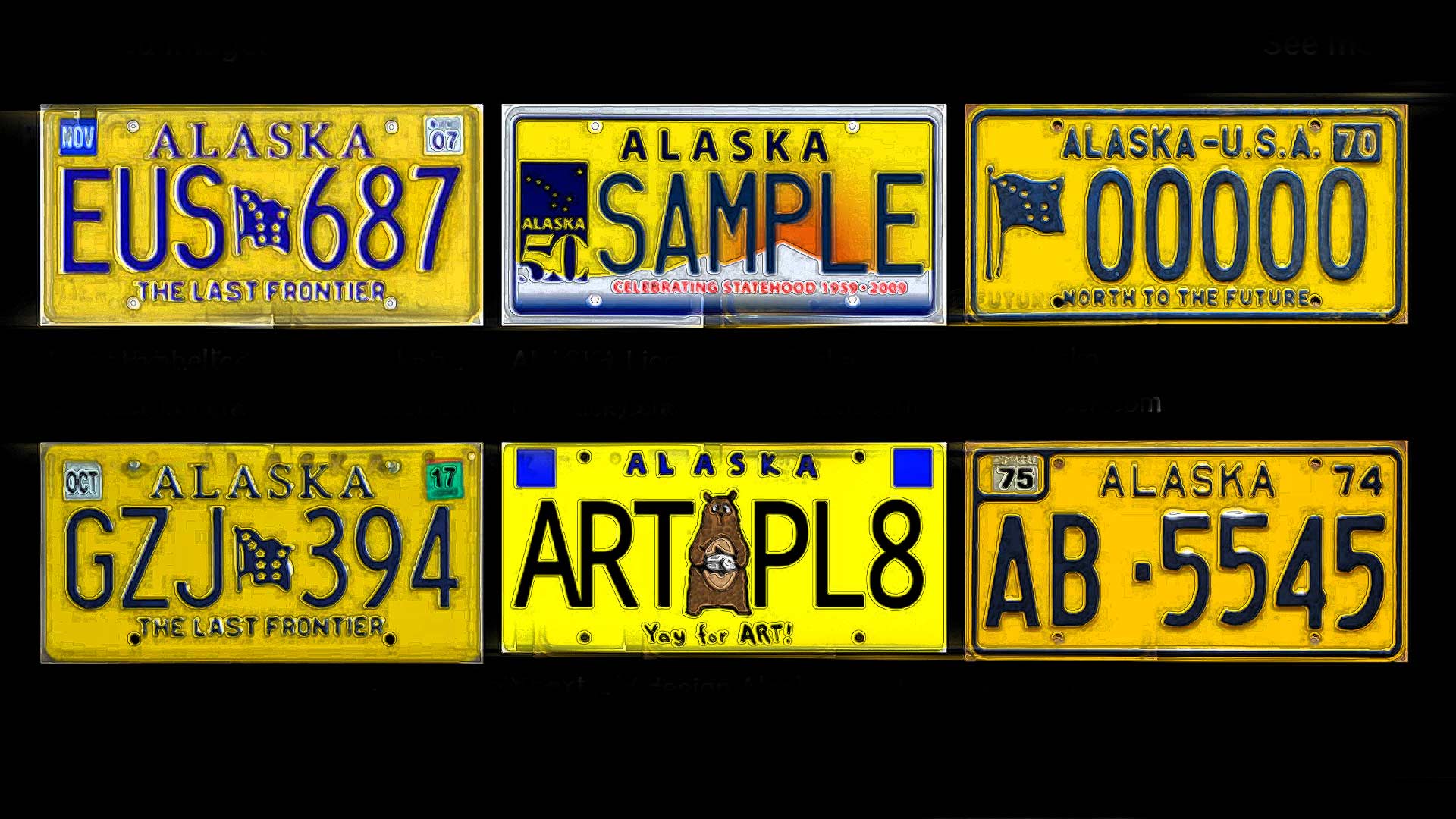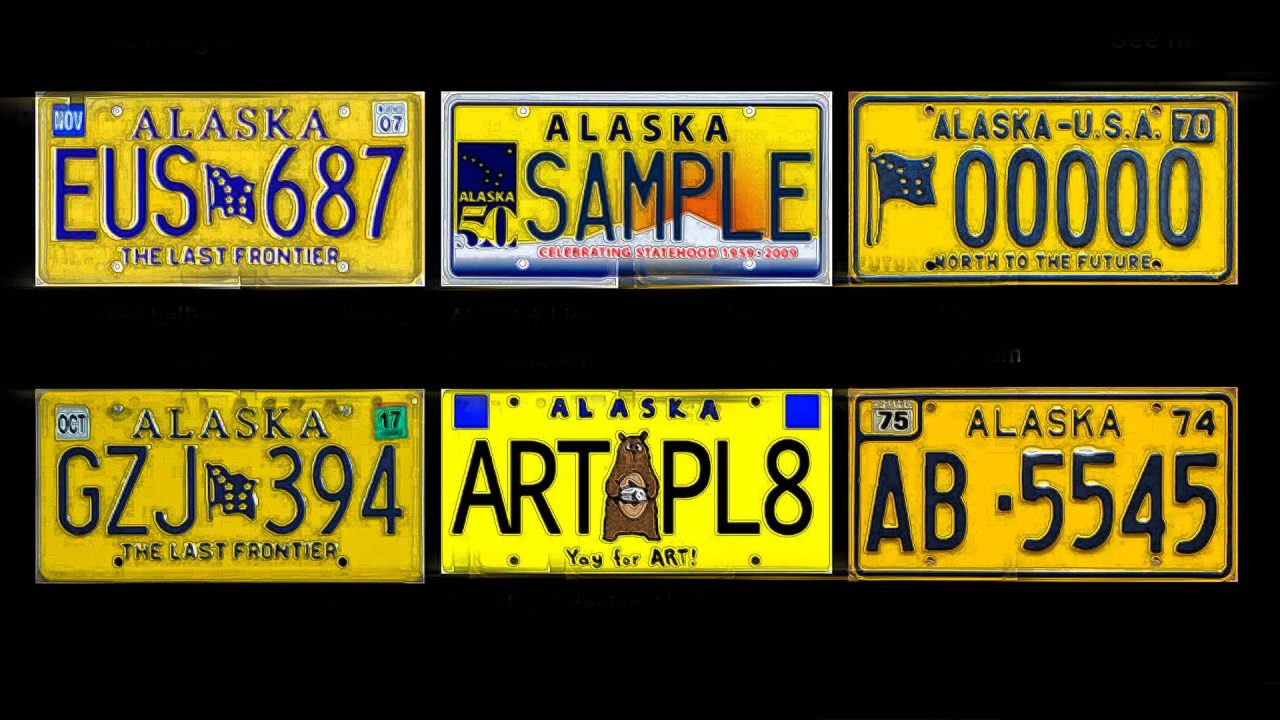
Recent revelation of two personalized Alaska license plates reading “3REICH” and “FUHRER” suggest several profound problems in our culture.
First the facts. Alaska’s Division of Motor Vehicles issued the two controversial plates over the past decade or so to the same person. “FUHRER” came first. “3REICH” was approved this past November. According to Alaska’s Commissioner of Administration Kelly Tshibaka, the plates in question had previously been recalled by the DMV and are unauthorized.
But that doesn’t explain why two terms intricately linked with Nazi Germany and its murderous dictator Adolf Hitler were initially approved and emblazoned on state issued license plates. The Department of Administration explained that the “3REICH” plate was green lit because the term was not on a list of more than 11,000 “vulgar, violent, criminal and demeaning terms” which a state computer program uses to screen applications. It appears neither the computer nor any DMV employees saw a serious problem.
Ignorance about Hitler’s Holocaust against Jews is particularly striking among younger people.
Why not? Are we so ignorant of recent history that we no longer recognize that Adolf Hitler’s title was “Fuhrer” and that his regime called itself the “Third Reich”? This evil regime tortured, dehumanized and ultimately murdered six million Jews before the Allied Forces of World War II defeated Germany in May of 1945.
The sad truth is that America has grown woefully ignorant of the past as schools and universities systematically deemphasize and deconstruct traditional history courses – replacing them with hyper-narrow electives that fail to teach the dramatic sweep of history to the next generation.
Ignorance about Hitler’s Holocaust against Jews is particularly striking among younger people. A 2018 survey on Holocaust knowledge and awareness in the U.S. revealed that 22% of millennials were “unaware or not sure” of what the Holocaust was and 41% of all U.S. adults were unable to identify Auschwitz – one of the most notorious Nazi death camps.
Solving the license plate problem is not merely a matter of tweaking software by adding more terms that can be flagged as inappropriate. I doubt DMV staff from the 1950s had any need for a computer to tell them that Fuhrer and Third Reich were references to Nazi Germany.
The second issue, here, deals with free speech and is a bit more complicated. In 2015, the U.S. Supreme Court ruled on whether the State of Texas had to issue license plates emblazoned with a Confederate battle flag. In a narrow 5-4 decision, the court found that state-issued license plates do not fall under free speech as protected by the First Amendment. Rather, they are a form of government speech. As such, the government can’t force private citizens to convey certain messages and private citizens cannot “force Texas to include a Confederate battle flag on its specialty plates.”
It might be best for the government to just do away with vanity plates all together.
Controversy over vanity license plates, however, is by no means settled. This past November – about the time the FUHRER plate was approved in Alaska – a federal judge found that California’s ban on “offensive” vanity plates was a form of viewpoint discrimination and therefore a violation of the First Amendment.
Like Alaska, California refuses license plates that are deemed offensive based on criteria that evaluates vulgar, obscene or sexual language that has “a negative connotation to a specific group.”
The U.S. District judge said his ruling still allows California to ban certain terms from vanity plates when they deal with profanity and hate speech, but even this is legally questionable in light of the U.S. Supreme Court’s 2017 ruling in Matal v. Tam. This case dealt with the government’s refusal to register “The Slants” as a rock band’s trademark name. The band is comprised entirely of Asian Americans who sought to repurpose a derogatory term and empower Asian Americans.
ALASKA WATCHMAN DIRECT TO YOUR INBOX
In this case the court said the government was discriminating based on a particular viewpoint. It ruled that “a law that can be directed against speech found offensive to some portion of the public can be turned against minority and dissenting views to the detriment of all. The First Amendment does not entrust that power to the government’s benevolence. Instead, our reliance must be on the substantial safeguards of free and open discussion in a democratic society.”
The justices added: “Speech that demeans on the basis of race, ethnicity, gender, religion, age, disability, or any other similar ground is hateful; but the proudest boast of our free speech jurisprudence is that we protect the freedom to express ‘the thought that we hate.’”
There should be no question that driving around with a license plate celebrating one of the most notorious and disgusting regimes ever to darken this planet is truly hateful. It might be best for the government to just do away with vanity plates all together.
If some Nazi sympathizer wants to outfit the car to pay homage to a mass murderer, make him do that on his own dime and wasted time.








15 Comments
People have a right to freedom of expression even if some people disagree. I have seen alot of black panther stuff out there and nobody ever bends an eye to it. Freedom of expression is not the same as somebody actively causing bodily harm. Get over yourselves people
The problem isn’t about free speech; you can put nazi flags, profane bumper stickers, or whatever the hell you want on your own vehicle. But when you force the government to do it for you–thats when there’s an issue.
Although I find the vanity plates in poor taste and find it hard to believe someone would want such words on their vehichle considering the atrocities of Hitler and his follwers. I would say your last paragraph of getting rid of such plates punishes those who are responsible. Let the publc ostracize these knuckle heads. Do not punish the many because of two. Maybe the silverlining is raising awarness of this terrible genocide to a new generation.
The Holocaust needed to happen. It needs to happen again. The Jew is not your friend. They are literally behind communism, not only in Russia but all over Europe, South Africa, and even China, amd especially here in the USA. They are behind gender bending, critical race theory, demonizing Whites, mass immigration, the Frankfurt school, etc. Nobody stops to ask what books the Nazis burned.
Ignorance of Peoples knowledge of the Holocaust, well these plates just educated a whole lotta folks on history right there. One life lost through savagery is one too many . The BLM Antifa wars this summer cost this nation Several innocent lives and burned down and damaged over 6 billion in costs. Wheres the frigging outrage ?
The holocaust was a joke. Auschwitz had theatres, a swimming pool, hospital, and nursery, as well as other accommodations, FOR THE PRISONERS!
Exactly, Everything is so one sided anymore.
You’re wasting your time Joel!! You’ve got far more important by issues to editorialize over than some cheap attention getting license plates!! I know all I want to know about the Period OF German history from 1918 to 1950 . I am not the least bit threatened offended by the swastika , word Fuhrer or Third Reich or for that matter use of the confederate battle flag. Those are merely memorabilia of a long past era never to be resurrected.Do us all a favor and get past it or are you just trying to sell newspapers?
This!
I agree with Joel. Too often public money is spent in the name of all of us when the message is not on behalf of good versus evil. Do we have a moral standard of behavior or not? Should we live according to the founding principles or just allow whatever we feel like. There is responsibility attached to freedom. Our Constitution was written based on the Bible but do people even know that because of altered and invented lies about history. The Holocaust, Civil War, WWI, WWII and Charles Darwin should not be cancelled so we do even know where we came from. We do need a moral compass as provided by Western (Christian) Civilization.
As a former school teacher I would like to add that the Cancel Culture is now outwardly rearing its ugly head. Keep us ignorant of our history so that marxist philosophies can replace it. It is spread by the National Education Association. The most recent example is Project 1619 pushed by the Biden administration. America is to blame for slavery and we fought the British in the American Revolution because we wanted slavery to continue and the British did not. This is a false history. Those who have researched the American Revolution will understand that we had a list of 28 grievances against the British including them taxing us repeatedly without our knowledge or representation. The 10 Bill of Rights in our US Constitution outline 10 of our grievances. There are history books with Truth in them such as America’s Providential History by Stephen McDowell or Abeka.com AMERICA-Land that I love.
It shows the times we are living in. It is was ingrained in the minds of the younger generation we were blindsided. While we allowed liberal education to indoctrinate our children we are now seeing the fruit (weeds coming up). Each family member must educate their young children because you won’t find this education in the school system. Sadly
When I was in exile from the Executive Branch during the Knowles Regime, I took a bunch of classes at UAS, one of which was a 400 level History course called, “Seminar on the Holocaust.” It had a prerequisite of 12 hours of History or the professor’s, a newly minted CA Ph.D, permission. Since this was his first semester, he was pretty generous with that permission. There were five or six adults and the rest of the thirty or so were late teen, early twenties regular college students, mostly juniors and seniors. Not ten of them could have put the Holocaust in WWII, put WWII in the right century, or named any of the causes and combatants. I’m sure that they all kinda’ knew this Hitler guy was a bad guy, but they had no idea when, where, or why. Yes, Virginia, you can be a college graduate and be a complete historical, cultural, artistic, and philosophical illiterate.
Joel, your last paragraph is interesting. Vanity plates cost more for the owner. So, yes, to put on a plate that is offensive to others does cost the individual and they are paying for that vulgarity.
SOTUS protects hate speech. I find these two to be offensive to me since I am of German descent. I also find offensive BLM, ANTIFA WLSOCI, HREPUB, HTRUMP, I am sure many possible plates I would find very offensive. I bet all those and more will be ‘protected” by the courts if denied by DMV. As much as I hate those listed, I will not deny those people the right to be stupid. If I’m driving down the road and saw these, I’d shake my head and first chance I got, passed that car so I did not have to look at it further.
Sadly, I am afraid if I have a vanity plate of HSOCI, or HBLM, or HANTIF, i would expect road range, my vehicle getting keyed and other acts of retribution. We conservatives don’t do that so the haters of our nation’s vehicle would be safe.
Hitler did nothing wrong.